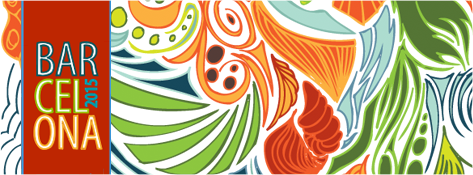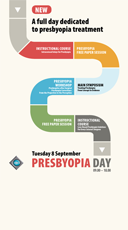Posters
(results will display both Free Papers & Poster)
Long-term experience of topography-customized intrastromal CXL applications for myopic, hyperopic and astigmatic refractive changes
Poster Details
First Author: G.Asimellis GREECE
Co Author(s): A. Kanellopoulos
Abstract Details
Purpose:
To report long-term clinical results of very high fluence, topography customized intrastromal CXL (PiXL) treatments aiming for myopic/astigmatic, hyperopic refractive changes and corneal ectatic disorder stabilization.
Setting:
LaserVision.gr Clinical and Research Eye Institute
Methods:
One-year refractive and keratometric (Sim-K) results from 57 cases (29 OS, 28 OD) are reported. The PiXL procedure employed the KXLII (Avedro Inc, Waltham, MA). 32 cases were transepithelial, epi-on, while epi-off were 25. Epi-on involved two-stage riboflavin solution administration. Epi-off involved excimer laser debridement.
Myopic/Astigmatic corrections were 10 cases, while hyperopic corrections were 10 cases. Myopic corrections involved a centrally applied UVA illumination, astigmatic corrections a bow-tie pattern, hyperopic corrections an annular-shape (donut-shape).
Ectatic disorders were addressed in 37 cases. A customized compound UVA pattern over the steepest cornea, combined with circular pattern over a 7-mm zone was applied.
Results:
Of the 10 myopic cases, one-year stability (reduced sim-K) was noted in all 5 epi-off and in 1 epi-on case; the remaining did not to achieve measureable/stable differences.
Of the 10 hyperopic cases, one-year stability (increased sim-K) was noted in all 5 epi-off and in 3 epi-on case; the remaining did not achieve measureable and stable differences.
Of the 37 ectatic cases (15 epi-off, 22 epi-on), one-year stability (reduced sim-K) was noted in 6 epi-off and 7 epi-on cases; instability (fluctuating K) in 3 epi-off and 4 epi-on cases, and not measureable differences in 16 epi-on and 2 epi-off cases.
Conclusions:
Photorefractive intrastromal customized delivery of UV-A offers a multitude of possibilities in modulating corneal topometric differentials.
Financial Disclosure:
One or more of the authors is employed by a for-profit company with an interest in the subject of the presentation, One or more of the authors travel has been funded, fully or partially, by a company producing, developing or supplying the product or procedure presented, One or more of the authors receives consulting fees, retainer, or contract payments from a company producing, developing or supplying the product or procedure presented





